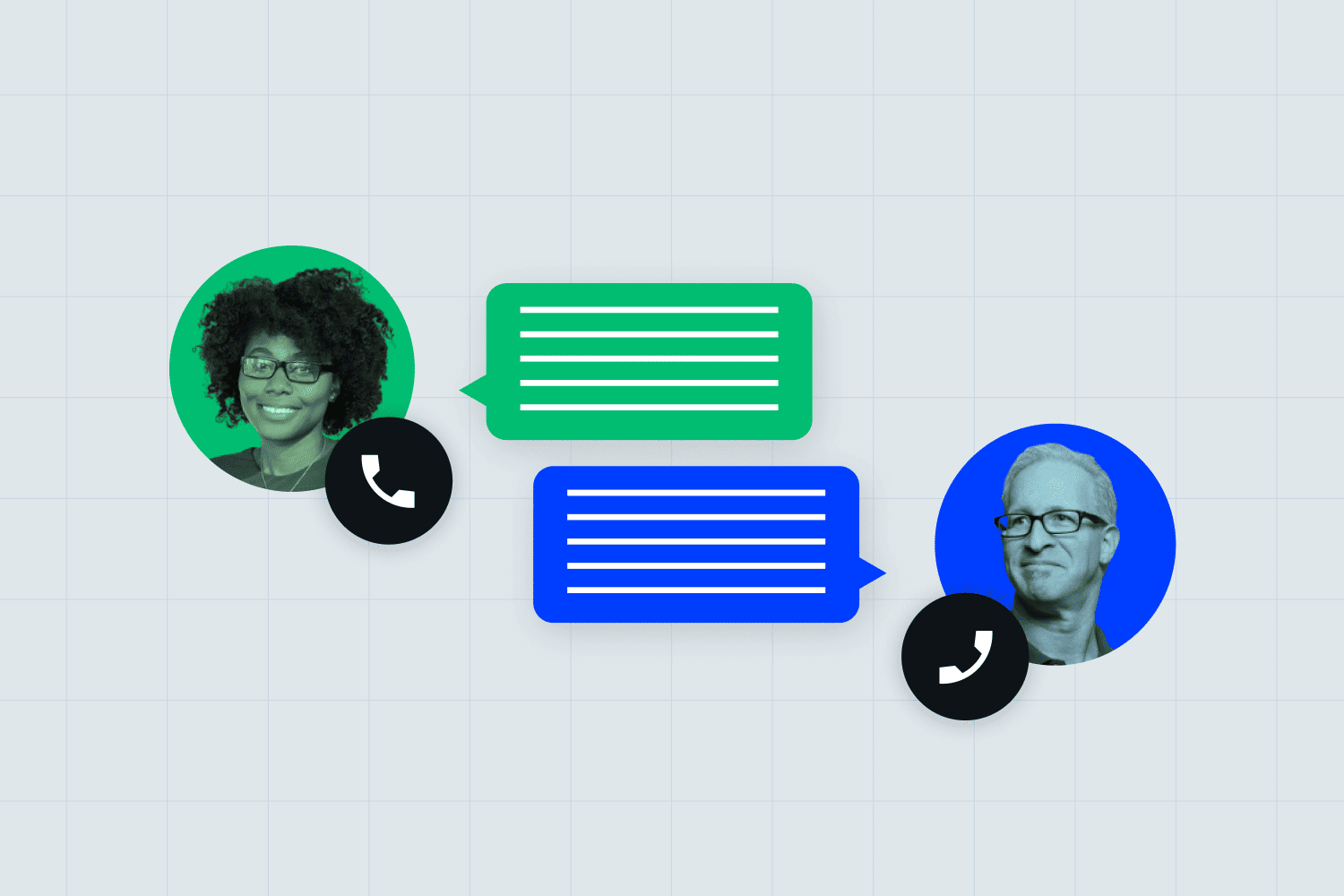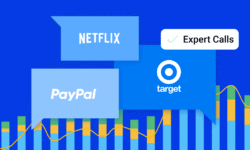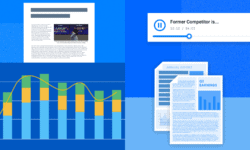In today’s ever-evolving economy, insights from subject matter experts with deep firsthand knowledge and experience about a specific company, market, or industry are the difference between a profitable investment and a significant loss. Investment analysts and companies alike are increasingly relying on qualitative research, like expert calls, to gain differentiated industry insights and make confident business decisions.
However, this poses the question: how do you build the perfect expert call to gain the exact insights you need to inform your investment strategy?
Investment analysts can take specific steps in preparing and conducting interviews with industry experts to avoid bias and gray areas to ensure that their expert calls extract the most valuable insights.
AlphaSense, a leading artificial intelligence (AI)-based market intelligence platform, offers proprietary Expert Insights through its extensive expert transcript library and Expert Call Services. Expert Insights is a powerful resource for expert perspectives that informs business and investment strategies with premium proprietary insights on any given topic.
Below we explore how to build the perfect interview with Expert Call Services to gain the most out of your expert calls.
Avoiding Unconscious Bias in Interviews
When conducting an expert call interview, it’s imperative to not only understand what unconscious bias is but also avoid it as much as possible. Especially when seeking deeper insight into investment opportunities, confirmation bias may lead investment analysts to overlook red flags or potential risks.
Expert interview bias occurs when either the interviewer or the expert inserts their own, typically unconscious, bias into the interview questions or answers. Avoiding bias leads you to more valuable information that can accurately inform your investment strategy and ultimately improve your time to decision.
Here are some types of unconscious bias and reasons to avoid them when entering an expert call interview:
- Confirmation Bias – Favoring information that confirms your pre-existing beliefs and ignoring information that counteracts them. Investment analysts should avoid seeking information that only aligns with their beliefs as this can cause them to overlook red flags and create blindspots.
- Survivorship Bias – Caused by focusing only on the solutions that have produced successful results in the past and disregarding unexplored solutions. While historical and successful results are critical for investment strategies, investment analysts must be adaptable to consider new solutions when necessary.
- Anchoring Bias – The tendency to fixate on the initial pieces of information you learn and filter unfamiliar information, rather than being open to new ideas. In a rapidly evolving financial market, investment analysts must keep an open mind to both new and old information.
- Halo Effect Bias – Occurs when positive experiences or impressions of a possible solution lead you to view the entire solution positively rather than being critical and considering its negative qualities. Investors should avoid the halo effect bias because it can leave them blindsided by gaps in their investment strategies.
By avoiding unconscious bias, investment researchers can extrapolate the most effective information to satisfy their research goals when conducting an expert call.
Structuring Your Expert Call Interview
In addition to avoiding bias, a well-structured expert interview can further help investment analysts extract valuable answers for their research needs by tailoring the right questions and organizing a well-constructed interview.
There are three types of interview formats: unstructured, semi-structured, and structured interviews. The semi-structured interview format is used in a wide range of qualitative research, especially for expert interviews because it allows flexibility while maintaining necessary focus.
Semi-structured expert interviews allow you to maintain consistency in topic and question focus while also customizing the details of your execution (like introductory conversation and question timing) to each specific interview.
Expert call interviews fall in between unstructured and rigidly structured interviews because both an open dialogue and a well-constructed questionnaire are necessary to capture natural first-hand expert opinions relevant to the topic.
Below, we explore four effective ways to structure and extract the most valuable insights from your next semi-structured expert call interview.
1. Define Your Research Goals
Preparing for an expert interview by clearly defining your research needs behind it and structuring it in advance can provide a framework for gathering the most quality information pertinent to your investment strategy and business goals.
A clear definition of the need behind your expert interview is critical to sourcing experts who have the right experience and knowledge. Whether you’re working with a traditional expert network or sourcing experts yourself, assessing the quintessential details about your project mitigates the risk of interviewing an expert who isn’t qualified for the job.
How can you clearly scope your project for potential experts through a third-party expert network? Here are a few tips:
- Be specific about the type of role and/or level of expertise you’re seeking
- Provide an overall description of your target industry
- Share examples of related companies and position titles you’re seeking
- Indicate if experts must come from specific companies and industries or if it’s acceptable to look for ones from related companies
By following a rigorous screening process, investment researchers can initiate an interview call with a perfect expert match to conduct their soft market research that meets the definitions of their research goals.
2. Prepare a Flexible Agenda
Once you’ve selected the expert you plan to interview and schedule your calls with, it’s time to create an agenda. Preparing and sharing an agenda with the expert before the call can ensure your objectives are clear and give the expert a chance to confirm their background is the right fit for your research needs.
Generally, expert interviews do not follow a rigid structure, so it’s unnecessary to provide a full list of questions beforehand. However, an interview agenda can offer the expert an overview of the topics you want to cover and allow them to prepare in advance to reduce overly subjective or off-the-cuff answers.
Subject matter experts possess a wealth of experiential knowledge on their respective industries and may digress into topics not pertinent to the core conversation which could invite their personal bias into the interview. Expert calls are generally time-limited; therefore, it’s imperative to keep the conversation focused in order to capture the exact information your research needs.
Interviews should always be conducted with a flexible but focused format by asking one question at a time while remaining flexible about the order of your questionnaire. This flexibility allows the analyst to capitalize on granular expert insights while remaining on topic and leaving time to dive deeper into unexpected insights from the expert.
3. Ask Well-Constructed Questions
Prepare strategic and intentional questions ahead of time that pinpoint the information you need, but leave them open-ended to get descriptive answers. This allows the expert to openly discuss intricate subjects on an industry or company topic and provide nuanced insights and unique perspectives.
Additionally, the way you frame a question directly impacts the answer you’ll receive. Leading questions, for example, are a common culprit for the entrance of bias into a conversation. Investment analysts should avoid asking leading questions that may influence experts to answer a certain way.
The more leading the questions are, the less likely the expert will comment in a surprising way, which robs the analyst of the opportunity to hear unexpected insights. Always ask questions with a neutral tone, and remain as open-ended as possible to avoid receiving “yes” or “no” responses.
The open flow of the semi-structured interview allows the expert to provide long-form responses and dive deeply into topics when necessary. This facilitates intriguing dialogue and invites the expert’s inflections and tone of voice into the conversation, providing valuable context to market trends, financial data, and company dynamics unavailable in traditional market research.
4. Keep Detailed Records
Relying on your memory alone to summarize expert interviews is a surefire way to invite bias into the equation. Detailed notes and records are critical to ensuring that your post-interview recollections and valuable expert insights are both accurate and neutral.
Recording your expert call interviews (with the expert’s consent) is good practice as it allows you to go back and review your conversation. It’s more than likely that you’ve missed some valuable insights or key takeaways the first time around, especially since you were focused on conducting the interview itself, not analyzing every response from your expert in real time.
When reviewing your recording, you have plenty of time to conduct analysis and listen to important parts of the conversation as often as needed. This helps to combat bias in your own assessment because it gives you the chance to take a second look at your own perceptions of the expert’s responses and consider them fully, rather than relying on your first impression as your final one.
Remember that your interview notes are not the same as your key takeaways. Summarizing the main key points and reflections from the expert call interview allows you to extract the most valuable insights from your expert call. Performing this analysis immediately after your interview helps to eliminate biases by avoiding the skewing of your memory over time. Your memory of the interview and connection to the insights you gathered are freshest right after the interview is complete, so it’s best to summarize takeaways as soon as possible.
Once you’ve summarized your key takeaways, you’re ready to inform your investment strategy with the valuable expert insights you’ve extracted from the expert call and make more informed business decisions.
Explore the art of expert interviews through the lens of top-tier analysts at AlphaSense and learn how to identify premium-quality interviews like those available through Expert Insights in our blog, A Comprehensive Guide to Mastering Expert Call Interviews from the Analyst Perspective.
Leveraging Expert Call Services
It’s clear that a lot goes into the process of building the perfect expert call, and that’s why leveraging AlphaSense’s Expert Call Services can minimize the overall time and effort it typically takes to source an expert, prepare an interview, conduct the interview, and summarize the discussion.
Investment researchers can use Expert Call Services to schedule one-on-one calls with industry experts easily within the AlphaSense platform by clicking the “Talk to This Expert” button found on every expert call transcript.
Expert Call Services provides you with personalized insights, a maximized research budget, and industry-leading compliance as explained below.
Personalized Insights
AlphaSense Expert Call Services provides one-on-one custom calls to a wide network of industry experts, from leadership to operational roles, offering insights into companies and markets, helping users get last-mile insights, or filling knowledge gaps effectively. With our speedy custom recruiting, AlphaSense can quickly source new and ideal experts for every research request to meet your research needs.
Maximized Research Budget
AlphaSense Expert Call Services maximizes return on investment (ROI) by reducing the costs associated with getting every perspective you need to outperform competitors. Gain access to over one million pre-qualified expert profiles spanning all industries globally with seasoned subject matter experts—such as thought leaders, former executives, customers, partners, and competitors.
Industry Leading Compliance
AlphaSense also provides industry-leading compliance to mitigate risks of exposure to material non-public information (MNPI) by thoroughly vetting both industry experts and investment analysts for each expert call. Our customizable compliance programs offer tailored solutions to ensure each custom call adheres to your company-specific standards and laws to provide safe and reliable content.
Discover how to transform your investment research from reactive to proactive in our infosheet, 4 Ways to Maximize Your Primary Research with Expert Call Services.
Unlock deeper insights and build the perfect expert call with AlphaSense. Schedule your next expert call today.




